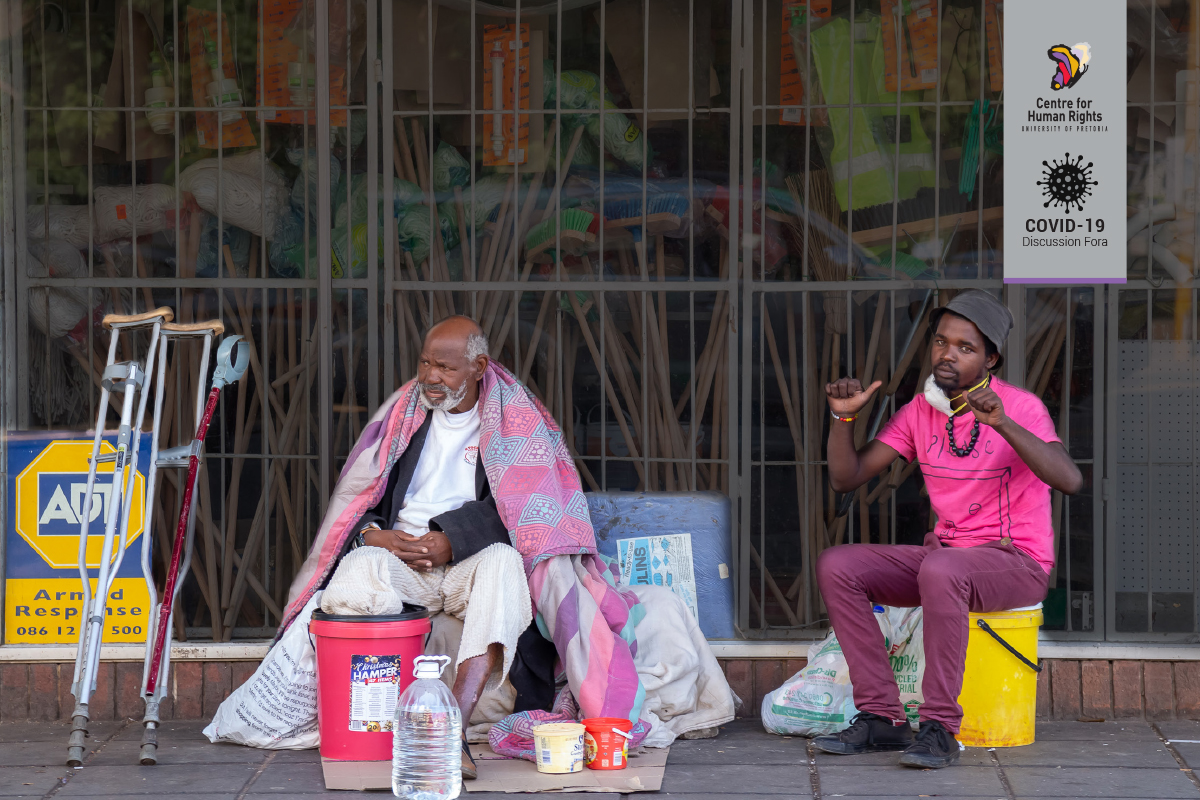On 7 May 2020, the Centre for Human Rights, University of Pretoria, held the third in a series of discussions with Centre alumni, students and staff. These discussions deal with the potential and actual impact on human rights and democratisation of COVID-19 in Africa. The discussion was held in Zoom.
Theme 3: Economic and trade-related impact of COVID-19 in Africa
Chair: Dr R. Jonathan Kabre
Postdoctoral Fellow; Programme Manager: International Trade and Investment Law in Africa (TILA), International Development Law Unit, University of Pretoria
Panelists:
- Chenesai Mukora-Mangoma (TILA 2013)
The impact of COVID-19 on the AfCFTA: a community-based approach - Kate Munuka (TILA 2014)
The impact of COVID-19 on responsible investing in Africa - Aisha Ally Sinda (TILA 2010)
The impact of COVID-19 on employers’ rights and obligations
Brief presentations by panelists were followed by questions and discussions by participants.
Background
COVID-19 knows no boundaries. It is affecting the whole world, including Africa. Although the pandemic has been late in fully surfacing on our continent, it is increasingly clear that African countries will not remain unaffected. Many countries have taken measures to restrict freedom of movement (through ‘lockdowns’) and have taken other measures to curb the spread of the disease. Already, examples of excessive measures with a disproportionate impact on marginalised groups, and measures exploiting the situation to mask authoritarian tendencies have emerged. There is a need to explore these issues in depth, and from a comparative perspective.
Tapping into the existing network of Centre alumni in programmes dealing with human rights and democratisation (Human Rights and Democratisation in Africa-HRDA; and Multidisciplinary Human Rights-MDHR), sexual and reproductive rights (Sexual and Reproductive Rights in Africa-SRRA), rights of persons with disabilities (Disability Rights in Africa-DRIA), and trade and investment in Africa (International Trade and Investment Law in Africa-TILA), will enable a comprehensive, African-focused, varied and multi-disciplinary perspective on the issue. As alumni are working in various African countries, and are exposed to different facets of the pandemic, sharing experience will be an opportunity (i) to take stock of and identify trends based on what is happening across the continent; and (ii) to learn from each other; (iii) devise joint and individual strategies. Involving our alumni and students in the round tables will also allow greater solidarity and a sense of a shared circumstance and purpose.
For more information, please contact:
